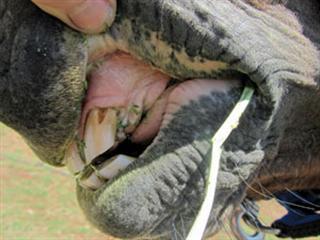Access to medications for the control of intestinal worms in the horse is becoming increasingly controversial

Introduction In-depth knowledge of the use of anthelminthics in the field, especially by veterinarians, is required to design more sustainable parasite control strategies.
Materials and methods An online survey was sent by e-mail to 940 equine veterinary practitioners to describe their equine practice, their awareness about parasites and the management strategies they apply.
Results Gastrointestinal parasites were generally considered (68%) as an issue of moderate importance. Drug efficacy failure was a minor or moderate issue for 47% and 48% of responders, respectively. Parasite management mostly relied on the use of systematic calendar treatments across a wide variety of horse owners (ie, riding schools, studs or hobby horse owners). Almost half of the practitioners (42%) never performed Faecal Egg Count (FEC) before drenching. Horse owners or their employees in charge of equines were reported to be the only person managing drenching in 59% of the collected answers. This was associated with the report of many off-label uses of anthelmintics and the frequent buying of drugs using the internet.
Conclusions Given the critical situation regarding anthelmintic resistance, it seems necessary for veterinarians to reclaim parasite management and prevention as a specific topic. Implementation of stricter regulations for use of anthelmintics, like the one applied in Denmark, may make parasitic management in equids more sustainable.
Click here to be directed to the study in the Journal of the British Veterinary Association.

